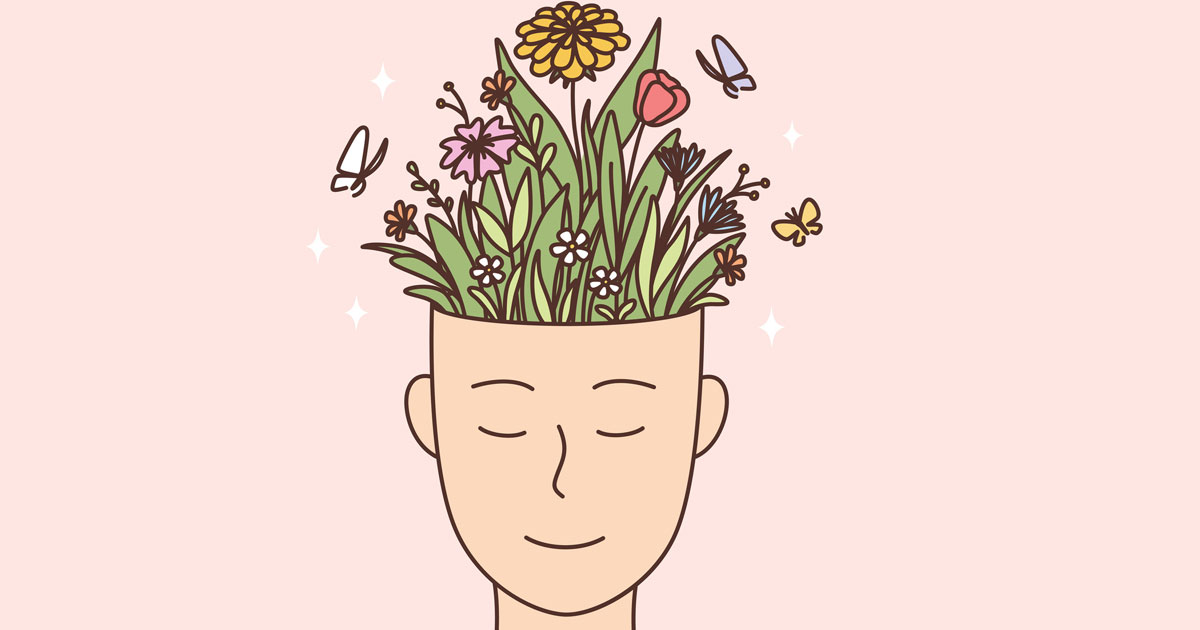Addiction recovery is hard, and nobody understands that like those in the recovery community. I’ve served to provide hope to those in recovery for over 25 years, and I see the struggle every day. I also see the tenacity and humility it takes to overcome something that is so damaging to not only the person in recovery, but also to the lives of those around them. Without humility, there is only hubris, a sense of self that can be so overwhelming that the ego can take over and permanently damage the lives we’re living. It is only without this ego that we can create room for hope and healing.
How Ego Drives Substance Abuse
Ego isn’t necessarily a bad thing. At its most basic, a person’s ego is little more than self-importance and a sense of self-confidence. Having a healthy ego is a good thing. Confidence is important in so many different arenas of life and can help people accomplish many things. When someone has a healthy sense of ego, they have control of their feelings and are more likely to make decisions and choices that are healthy for themselves and others. However, that same ego is an ever-changing dimension of a person’s personality, and when it gets out of control, it leads to more harm than good.
Someone with a too big or out of control ego often participates in behaviors that are seen as narcissistic or selfish. This can stem from an inflated sense of self-importance and a feeling that only their opinion or feelings matter. When this happens, ego-driven people seem to lose compassion for others in the world around them and show little to no concern about how their actions may affect others. Often, this becomes a perpetual cycle of inflated self-importance and disregard for others.
Those with a big ego can have a difficult time controlling that ego. They may find that rather than employing logic to work through difficult situations, they may instead rationalize their harmful actions with “logic” they twist to fit their needs. While those in control of their ego often have a relatively easy time working through tough feelings and emotions, those with a big ego problem will instead let those negative feelings and emotions begin to define who they are.
The biggest issue is that people with an inflated ego will have a harder time accepting their part in the events unfolding around them. Instead of accepting that they have caused some of the problems they’re facing due to their substance use, they will blame them on others. This means that they often begin to justify their actions rather than taking ownership and responsibility for their poor choices. These behaviors are key in the cycle of substance abuse.
How Ego Gets in the Way of Recovery

Now that we have a better idea of what ego is and how it can drive addiction and substance abuse, we can start to understand how it might get in the way of recovery. To be successful in recovery, we need to learn to be open and accepting of the world around us to begin the recovery process. Unfortunately, those with inflated egos have a difficult time doing that.
For example, group therapy and other techniques used in recovery programs often involve listening to others before sharing and giving feedback about one another’s situations. The person with a big ego won’t be able to do this easily, as they can have a difficult time accepting what others say and taking those feelings seriously. They also may have a difficult time listening to the recommendations of the professionals who are trying to help them.
Those in recovery with egocentric tendencies often struggle to maintain impulse control. Many feel like their immediate needs are more important than anything else, and instead of sticking to a program and remaining sober, they’ll seek to fulfill those needs. While even ego-driven people in recovery understand that the substance they’re addicted to is harmful to them, they often attempt to justify their use of the substance. The intent is to downplay the addiction by suggesting that their momentary indulgence is more important than any harm being caused. That inflated sense of self places a very specific stumbling block before those working through recovery.
What Are the Dangers of a Big Ego?
Having a healthy ego can be very beneficial, but when that shifts, a big ego can be dangerous. There are four main obstacles a big ego can pose that get in the way of recovery.
Lack of Awareness
When someone with a big ego focuses all their attention on how superior they are to those around them, they lose sight of the harm addiction is causing to others. This can cause significant issues with remaining sober.
False Contentment
While failing to see the big picture or the world as it is changing, someone with a big ego may fall into the trap of false contentment. Living in complacency can make ego-driven people fail to strive for more. Those in recovery need to understand that recovery is a continuous process and falling into complacency can prevent progress.
Carelessness
Living with an unchecked ego can result in carelessness that leaves the individual without the drive to put effort into any of their endeavors. When an ego-driven person thinks what they seek will come to them without any work, they may struggle with their sobriety and lose sight of their goal.
Isolation
By isolating themselves away from those who wish to help them, egotistical people in recovery cause more harm to their potential for recovery than they realize. Eventually, those who isolate themselves will end up without the support system so vital to the recovery journey.
Because sobriety and recovery are life-long processes, those that continue to focus on a large ego can continue to set themselves back, even after years of treatment and recovery. Falling into a place of stasis or complacency may make them feel as though there’s nothing else they can learn—and that’s when many falter. When an ego-driven person no longer feels as though they must continue working through their addiction, they risk experiencing relapses because they fail to see that this new life requires work. In general, any time you stop defending your recovery journey, you may find yourself in difficult situations.
Replacing Ego With Humility

The best way to negate the drives of an egotistical personality is to focus on humility. Humility is the spiritual opposite of egoism. When you understand and live in humility, you can lose their feelings of self-inflated importance and begin to accept your role in your own life. Being self-aware is a way that those with a big ego can gain a better sense of humility. When you can understand the ego and learn that you are a part of your own struggle—that the world around you isn’t solely responsible for your situation—you have a much better chance of success.
You can find humility in a number of ways:
Practice Mindfulness
Practicing mindfulness requires simply being present in the moment. While many people benefit from classes and training in mindfulness, others simply choose to live within the present moment rather than the past or future. Understanding the purpose of the here and now can help you focus on the world around you rather than just yourself.
Be an Active Listener
People love to talk about themselves, when sometimes what they really need is to listen. The trouble with egotistical personalities is that being self-absorbed makes it nearly impossible for you to listen to those around you. Taking time to really hear what people are saying can help give a better perspective and force you to focus on others.
Stop Isolating Yourself
Having a healthy support system is crucial to your successful recovery. Only being able to rely on yourself as a resource and a sounding board keeps both problems and solutions internal. That can lead to a great sense of self-importance, which in turn continues the cycle.
Be Authentic
When you can authentically represent yourself, you’re able to be more open and honest. A big trap many people in recovery can fall into is not being honest about their issues. When you feel like you need to keep secrets or hide what you’re doing, you may fall into old behaviors. When you can be open and honest with others, you’re able to be more open and honest with yourself, too.
Be Thankful
Recognize and understand what you have and make an effort to be thankful for it. This also allows you to focus on those around you instead of just yourself. When you can turn outward and be thankful, you’ll have fewer reasons to believe that the world revolves around you.
Ask for Help
Many people with ego issues are so self-assured that they might not seek help from external sources, even when they need it most. When you do this, you risk falling back into patterns of isolation. However, if you are humble enough to seek help when you need it, you can admit that you aren’t the only person of value and open yourself up to truly receiving the tools you need for recovery.
Are You Experiencing Ego Fatigue?
Ego fatigue focuses on the theory that each person only has a limited amount of mental energy to maintain their life. When we overextend that energy, we begin to lose the willpower necessary to preserve our ability to function. For many people experiencing addiction, a common solution is to turn to substances to keep from feeling as though they’ve depleted that energy. However, they fail to see that that addiction itself is depleting the energy necessary to survive.
At this point, ego-driven people with substance abuse issues fail to understand the harm they are causing. When they try to resist those impulses, they are slowly depleting their ability to resist temptation until they seek the substance once again. Those substances provide the instant gratification ego-driven, addicted people crave so that they can feel as though they’ve recovered that small amount of energy available. If you are experiencing this ego fatigue, you are at risk of falling into the cycle of justification.
Ego and Recovery
To achieve a successful recovery, you must be willing to learn and change. When you have too much ego to admit you need help, you’ll encounter obstacles to receiving that help. When you fail to realize that you are the cause of your own problems, you’ll continue to seek those things that may make you feel like you have control. In both situations, it’s important to remember that substances take away that control.
Ego Self-Assessment
Admitting you have an ego problem can be difficult. However, if you can be truthful enough with yourself to assess your own ego, you may get a better grasp on whether your ego could inhibit your path to recovery.
This self-assessment asks a few different questions about how you may handle certain situations, assessing your ego and helping you determine whether you have a big ego. With a few honest answers about how you may handle situations in the workplace, in your free time, and in your personal relationships, you’ll have the opportunity to join a community that can help you manage a difficult ego. You’ll also understand how your ego may affect not only your own sobriety, but the recovery journey of others in your life.
Remember, you’re in control of your own ego, and only you can take the steps you need to address the issues you may have. Making the changes necessary to begin a successful recovery is in your hands.





